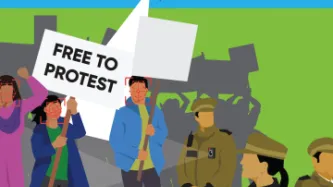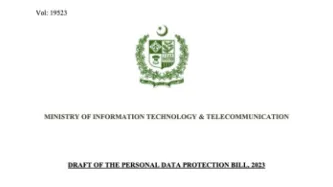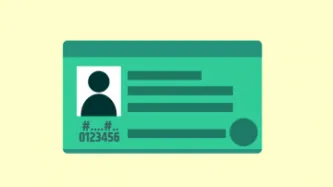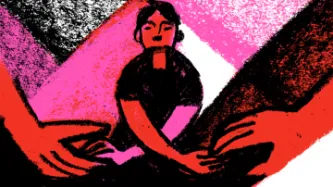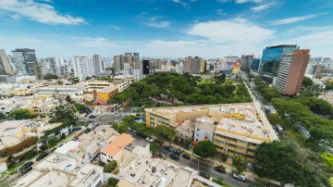Search
Content type: Report
The methodology employed for this report consists primarily of in-depth interviews held with grassroots political workers and representatives of collectives. The researchers interviewed 14 individuals from various social justice causes such as womens’ rights, climate change, transgender rights, students’ rights and the right to universal internet access in Pakistan. The experiences they have shared with the interviewers along with the real-time developments in the country’s law and order…
Content type: Explainer
The Free to Protest Guide Pakistan has been created by adapting Privacy International's (PI) Free to Protest Guide UK according to the laws and policies of Pakistan, in collaboration with PI and local activists in Pakistan.The Guide has been published in English, Urdu, Punjabi and Pashto.DISCLAIMER: This guide forms part of PI's global work to highlight the range of surveillance tools that law enforcement can use in the protest context, and how data protection laws can help guarantee…
Content type: News & Analysis
Privacy International (PI) is concerned by developments in Pakistan regarding the enactment of the Draft Personal Data Protection Bill, 2023 and the opaque process which will see the bill become law.
The Bill was published on 19 May 2023 by the Ministry of Information Technology and Telecommunication ('MITT'). However no open and inclusive consultation was open for comments to be submitted to the MITT. In a concerning development it was reported that the Bill was approved by the Federal…
Content type: Case Study
This piece was written by Privacy International, based on publicly available information and on research by our partners at Hiperderecho
Overview
The Documento Nacional de Identidad (DNI) is the personal ID card recognised by the Peruvian State in any situation where a person might have to identify themselves, be it in an administrative, judicial, civil, or commercial context. The DNI also grants its holder the right to vote.
The DNI issuing and overseeing body is the Registro Nacional de…
Content type: Examples
While traditional media sought to criminalize the widespread November 2020 protests in Peru following the Congressional ouster of President Vizcarra, witnesses disseminated videos and photographs of police abuse on social networks. In the fear and uncertainty, many myths also circulated. In Peru, citizens have the right to refuse to allow police to check their cellphones unless they have a court order; slowed or absent wireless connections may simply be due to overload; as public officials,…
Content type: Examples
On November 9, 2020, after a year of escalating tensions, Peruvian president Martín Vizcarra was impeached on the grounds of "moral incapacity" by lawmakers threatened by his anti-corruption investigations and the policy reform he led. The street protests that followed all over the country were coordinated via Instagram, Twitter, WhatsApp, and TikTok (#MerinoNoMeRepresenta) by hundreds of newly-created small, decentralised organisations. The march on November 14 is thought to be the largest in…
Content type: Examples
Peruvian police have used force, arbitrary arrests, undercover infiltrators, tear gas, and forced disappearance against marchers protesting the removal of president Martín Vizcarra. Three protesters have been killed, more than 60 have disappeared, and hundreds have been injured. While the traditional media has either ignored the protests or depicted them as criminal, social media and the internet have been crucial in documenting police abuses via shared images and video. Police have begun using…
Content type: Video
You can listen and subscribe to the podcast where ever you normally find your podcasts:
Spotify
Apple podcasts
Google podcasts
Castbox
Overcast
Pocket Casts
Peertube
Youtube
Stitcher
And more...
And support PI's work here: support.privacyinternational.org
Content type: Examples
Corruption scandals have added to Latin America’s challenges in dealing with the coronavirus. In Ecuador, prosecutors identified a criminal ring that colluded with health officials to sell body bags to hospitals at 13 times the normal price, and many others are accused of price-gouging for other medical supplies.
The former Bolivian health minister is under house arrest awaiting trial on corruption charges, government officials in seven Brazilian states are under investigation for misusing…
Content type: Case Study
The Peruvian government has a history of collaboration with the private sector in developing technology with the alleged purpose of providing greater security to citizens. The most recent example, the smartphone application "Peru En Tus Manos" launched in the context of the Covid-19 crisis, has been developed in a similar fashion and currently collects geolocation data on more than a million users. Although Peru has a proper legal framework for public private partnerships, developments are…
Content type: Examples
TrustNet Pakistan, the country’s only digital trust foundation, has begun work alongside many other global technology companies on a digital vaccination verification platform called CovidCreds. The initiative supports projects that use privacy-preserving verifiable credentials. TrustNet is working on a solution called Vaccify to provide verification that it’s safe for people to travel out of Pakistan. The system is expected to work via a mobile phone app that can digitally receive test results…
Content type: Examples
A detailed analysis of Pakistan’s app, which was developed by the Ministry of IT and Telecom and the National Information Technology Board and which offers dashboards for each province and state, self-assessment tools, and popup hygiene reminders, finds a number of security issues. Among them: the app uses hard-coded credentials, which it sends insecurely, to communicate with the government server, and it downloads the exact coordinates of infected people in order to provide a map of their…
Content type: Examples
The lack of data protection laws and the absence of a privacy commission are contributing factors to Pakistan’s failure to investigate or remedy security flaws in the country’s recently-launched COVID-19 tracking technology, which partially depends on a system originally developed to combat terrorism. While there are no reported cases of harassment or targeting based on the leak online of the personal details of thousands of COVID-19 volunteers, the lack of response fails to boost citizens’…
Content type: Examples
It's been two months since the launch of "Perú en us manos", the mobile app promoted by the Peruvian government amidst the Covid-19 pandemic. Until now the app did not accomplish the ambitious goals it set out to.
On its first month the app had detected 1400 risk zones while there where already 36,000 confirmed infection cases. There is little transparency on how those risk zones are estimated. Developers of the app state that only one fifth of the data provided by the Health Ministry is clean…
Content type: Examples
As the first confirmed coronavirus case in Pakistan, Yahyah Jaffery became a pariah after his identity, photograph, and home address were leaked on social media. Similar leaks about dozens of other patients and medical staff followed. The contact tracing system being used for coronavirus was originally developed by the country's Inter-Service Intelligence (ISI) to combat terrorism; it is based on a new data hub in Islamabad that will collect information from the ISI tracking system and share…
Content type: Examples
Our partners from Digital Rights Foundation in Pakistan wrote a piece analysing cases of privacy violations, misinformation, hate speech and other cases. As they said, the situation with regards to the Coronavirus is still developing in the country and Digital Rights Foundation, are keeping an eye out for the developments regarding the disease and also assessing how the digital rights sphere is being affected.
Link: https://digitalrightsfoundation.pk/protecting-your-digital-rights-during-the-…
Content type: Examples
Our partners from Hiperderecho in Peru proposed 15 measures to improve the COVID-19 app that the Peruvian Government is rolling out in the country (in Spanish).
Link: https://hiperderecho.org/2020/04/quince-propuestas-para-mejorar-la-aplicacion-del-gobierno-del-covid-19/
Content type: Examples
The Pakistani government has repurposed a system designed by the country's spy agency, inter-Services Intelligence for tracking down terrorists to trace suspected COVID-19 cases. Prime minister Imran Khan has said that efficient tracking and testing of coronavirus-infected people is the only way to reopen the country's closed businesses.
Source: https://www.indiatoday.in/world/story/pakistan-government-isi-system-track-suspected-covid-19-cases-pm-imran-khan-1670378-2020-04-24
Writer: Press…
Content type: Examples
Eight days after instituting a gender-based quarantine schedule, Peruvian president Martin Vizcarra cancelled the measure two days before it was due to end. It had been met with a backlash from LGBTQ+ activists, who feared trans and binary people would face increasing street harassment from police. However, it also proved that because women do a disproportionate share of domestic work, gender separation forced them to gather in large groups on the days they were allowed out. Instead…
Content type: Examples
On April 2 Peruvian president Martín Vizcarra issued a controversial rule that men and women must observe quarantine on different days: men may leave their homes on Mondays, Wednesdays, and Fridays, while women may leave only on Tuesdays, Thursdays, and Saturdays. No one is allowed out on Sundays. Some critics are concerned that the plan will lead to disproportionate harassment of LGBTQ+ people because the police are instructed to stop people based on gender presentation. The purpose, the…
Content type: Examples
An Excel file containing complete data pertaining to patients tested for coronavirus in the cities Quetta and Taftan in the the Balochistan region of Pakistan has been circulating in WhatsApp groups about Balochistan. The file contains information such as names, phone numbers, age address and other identifying information for the patients. The leaked data puts the patients at risk of personal harm and social stigma, even after recovery. Balochistan government officials say the data leaked…
Content type: Examples
An official directive from the Pakistani provincial government of Sindh titled "COVID-19 Mobile Registration System for Needy People" describes its use of multiple databases to identify those in need of welfare funds and disburse cash to them by combining taxpayers' data from the Federal Board of Revenue, travel histories from the Federal Investigation Agency, and financial information from the State Bank of Pakistan. Recipients need to create cellphone accounts via the service provider Jazz in…
Content type: Examples
Mobile phone users in Pakistan have discovered that the government is accessing, without consent, their mobile phone location and call records despite legal questions about whether doing so violates the country's constitution. After users reported that patients testing positive for COVID-19 returned home, the government sent SMS "Karuna Alert" messages to some of their friends, family, and neighbours; the Pakistan Telecom Authority confirmed it had sent the messages using patients' registered…
Content type: Examples
On March 20, the Peruvian government introduced a website where citizens can retrieve the results of tests for COVID-19. The site asks only for the patient to fill in their National ID number and a simple captcha, making it easy for unauthorised parties to access others' results and put people at risk of exploitation and discrimination.
Source: https://saludconlupa.com/noticias/peru-debilidades-de-plataforma-del-ministerio-de-salud-pueden-exponer-informacion-clinica-de-pacientes-covid-19…
Content type: Examples
On March 19, the Peruvian government instituted a daily curfew from 8pm to 5am, which applies to all but those working to provide essential services. Members of the print and broadcast press must carry their special permits, badges, and ID cards, and those requiring urgent medical care are allowed to travel. Private citizens are no longer allowed to drive their own cars at any time except where necessary for the above groups. The law is being enforced by the police and armed forces.
Sources:…
Content type: Examples
On March 17, after declaring a state of emergency an ordering everyone to stay at home, the Peruvian government began requiring a special authorisation for street travel. Workers in a the categories specified in Article 4 of the Supreme Decree must obtain the authorisation via a government website. The authorisation process involves cross-referencing with other personal databases to check the accuracy and validity of each application.
Source: https://andina.pe/ingles/noticia-peru-key-…
Content type: Examples
On March 14, the Peruvian government set up a website for individuals to check their symptoms so they can be directed towards sources of help. The web form asks for ID number, phone, email and home address.
Source: https://www.gob.pe/coronavirus
Writer: Peruvian government
Publication: Peruvian government
Content type: Examples
Under a new protocol, international passengers arriving at Lime's Jorge Chavez International Airport or by ship at Callao Port, is referred to medical staff if they are arriving from places with confirmed cases, even if they are asymptomatic. Passengers who show symptoms in transit are transferred to isolation areas, where they receive care. The passengers are also required to supply personal information so they can be surveilled over the following days.
Source: https://andina.pe/ingles/…
Content type: Examples
After Pakistani residents queried whether messages labelled "CoronaALERT" sent out via SMS were legitimate, telecom authorities confirmed that it was authentic, being sent to selected individuals at the request of the Ministry of Health under the Digital Parkistan programme. Individuals were chosen because they might have come in contact with infected individuals during travel or in specific locations. It is not clear, however, what the criteria were for selecting individuals at risk,…
Content type: Examples
Peru has suspended constitutional rights such as freedom of movement and assembly, although the government has guaranteed the operation of supermarkets, pharmacies, banks, basic services, and the transportation of merchandise.
Source: https://www.reuters.com/article/us-health-coronavirus-latam-idUSKBN2133BY
